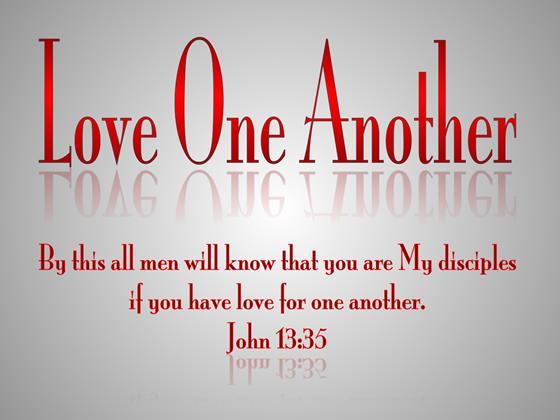Your Pregnancy Help Organization and COVID-19
If you are a Heartbeat Affiliate, please click log in at the top of the page to view more materials! Additional materials will appear below for those current affiliates who are already logged in. Click here for more information about affiliating with Heartbeat International.
You can also get a recording of our webinar series Coronavirus and Your Pregnancy Help Organization for free by clicking here. Resources related to those webinars are also available on the Complimentary Materials page here.
The information in these articles is accurate as of the publication date of each one. We are working to keep our articles up-to-date as changes surrounding COVID-19 occur, and we encourage everyone to check the CDC, WHO and their local authorities as the situation is ever-evolving.
Displaying items by tag: John
Never Overlook the Obvious
Servants of Excellence
“By this all men will know you are my disciples, if you have love for one another.” John 13:35
One of the easiest answers in the Bible is found when we pose the question, “How can I show others my faith?”
While there are a variety of characteristics a Christian might display—including the fruits of the spirit listed in Galatians (love, joy, peace, patience, kindness, goodness, faithfulness, gentleness, self-control)—there is one salient attribute the outside world will never overlook: Love for one another.
Jesus’ words in John 13:35 often wind up on our refrigerators, in memes on the internet and on tee shirts. But here’s a question: Do we really get it?
I’ll be the first to admit, I enjoy digging around in scripture to find powerful truths and unique ways to highlight these thoughts. But in the middle of reading, studying and writing on these subjects, am I taking the time to love those who share this faith with me?
Am I making it the priority in my life to love my fellow believers so that others will know—without a doubt—we are all Christians, faithfully following Jesus Christ?
There are evangelism courses all over the place. There are writings on topics relating to defining our faith, sharing our faith and defending our faith. These are all good, and important. No question about it.
But I must ask the question of myself: Is living my faith by loving my fellow followers the key focus of my faith? Or is “the love thing” simply a sweet ditty of Jesus; a nice thing to hear, or a good subject for an occasional devotional?
Just before speaking the words above Jesus says, “A new commandment I give to you, that you love one another, even as I have loved you, that you also love one another.” Do I take this command to heart so strongly that I truly believe our love for each other is all we need to identify ourselves to a hurting world?
Because if I believe “love for one another” will make everyone see the power and the impact of our faith, I also understand the first logical step in reaching more people with the message of Good News Jesus offered is . . . love.
“Love one another” is more than icing on the Christian cake. It is the nourishment which fuels a healthy body of Christ. When we love, we create a powerful, engaging incentive for those outside of the faith to say, “Can I join, too?”
by Kirk Walden, Advancement Specialist
. . . And the Darkness Has Not Overcome It
by Jennifer Minor, Editor/Writer
I don’t know if you think much about light, but I usually don’t.
Most days, I take it for granted. All I have to do is flip a switch when I walk into a room and the darkness is chased away. That, of course, is the beauty of light. It can’t be overcome by darkness.
Now maybe this is a human failing, but I can’t just let it sit there. I have a lot more to think about with light and darkness. For example, especially as the seasons change and the days get shorter, I find myself sitting in a room that’s perfectly well-lit in the afternoon, but discovering an hour or so later that I can’t see what I’m reading or working on.
The light escapes, and I don’t notice.
It’s a simple solution – just flip a switch – but I can’t help but worry and wonder about why I never noticed the light leaving. I notice when a light bulb goes out, when a match is struck, when a campfire sputters out, when the first light of dawn sneaks through my window to wake me up. That’s just it though; I notice the change in light, and even then, only dramatic changes.
That’s why I take electric lights for granted, and even the sun on nice days. I forget about the light, and with it, the possibility of darkness.
Candles though, always draw my attention. They don’t change significantly, but they do flicker. They change just enough to keep my eyes on them.
I think that must be the kind of light that Jesus is talking about when He says, “Let your light shine before men in such a way that they may see your good works, and glorify your Father who is in heaven” (Matthew 5:16).
A candle not only draws attention so that it may be seen, but it also carries an incredible potential to spread light. Now, I know a single candle in a dark room may not seem like much, but at my favorite church service of the year, something else amazing happens. We start with just one candle, the one that represents Christ, and everyone in the church holds their own little candle. One person lights their candle from the Christ candle, and then spreads the light. In a very short amount of time, hundreds of candles are shining and everyone can see because the darkness is being overcome.
This is extraordinarily beautiful, even if it's very simple. Every candle in that church gave away some of its light so another could be lit, but it didn’t lose anything. In fact, the flame grew and changed more than the usual flickering when it touched a second wick. It doubles in size. It can multiply, but not divide.
And a wick that’s been lit before, even if the flame goes out, is easier to light a second time.
So that’s my challenge to you. Be a candle. Light other’s candles without fear of losing something that you have. God doesn’t work that way. He is love and light.
The light shines in the darkness, and the darkness has not overcome it. (John 1:5)
Kick Out the Doubt
by Kelly Russell, Encouragement Expert
We have the idea that life should happen the way we want, when we want. Our expectations often exceed reality. A perfect scenario is created in our minds and when life takes a different turn, we lose heart. Jesus said not to be troubled but be at peace (Matthew 16:23). Only God can arrange things in such a way that we benefit best and He is glorified most. As Jeremiah wrote, “Who is the clay to say to the Potter, why are you doing it that way?” God sees us as a finished product, not a work in progress.
Our rough places must be made smooth to shape us into the image of Christ. Our primary calling isn’t to “do” or “go”, but to become. God is more concerned about pure hearts than polished lives.
We can only ever know what God is willing to reveal. He knows the beginning from the end, and He works all things together for good to those who love Him. Knowing God is knowing enough. In Christ all wisdom is found (Colossians 2:3). Why are we not content with this alone? Our human desire is to know more; God’s desire is for us to know HIM more. If we knew what God knows, we would choose His will every time. We doubt what we can’t see and believe what we do see. Jesus said those who believe without seeing are blessed (John 20:29).
God’s Truth is not to be found in our feelings, but always in His unfailing Word. God’s promises are unlimited but we limit them with our doubt and unbelief. Numbers 23:19 says, God is not human, that he should lie, not a human being, that he should change his mind. Does he speak and then not act? Does he promise and not fulfill? Let these words deflate doubt and undo unbelief. Read it and believe it! We kick out the doubt with faith, which comes through God’s Word.
The solution to unbelief is to ask God for help (Mark 9:23-24). Doubt derails and discourages us. Saturating ourselves in Scripture slams the door on doubt and discouragement. God’s presence eclipses every one of our struggles.
Christ followers are called to the same purpose every day—to take up the cross and lay down their lives. In denying ourselves, we can truly rely on Christ and His resurrection power. If my life is in my hands then the cross cannot be (Mark 8:34). Our goal is eternity, therefore our focus should be the same. It’s not our circumstances we need to be in touch with, but the Savior Himself. On our journey with the Lord, may He become greater while we become less.
Read: Isaiah 45:9; John 3:30; 2 Corinthians 4:18; 1 Timothy 6:6-7
Kelly Russell was raised in a military family, traveling around the world. She now lives in Melbourne Fla., where she and her husband serve in the leadership of their church. Kelly's heart is to encourage people with passion and conviction through the gift of words.
An Acorn or a Forest?
by Debra Neybert
And Jesus answered them, The time has come for the Son of Man to be glorified and exalted. I assure you, most solemnly I tell you, Unless a grain of wheat falls into the earth and dies, it remains [just one grain; it never becomes more but lives] by itself alone. But if it dies, it produces many others and yields a rich harvest.
John 12:22-23
There is a wonderful truth in this verse....when a natural seed falls into the ground, it dies, and the hard outer shell breaks away, in that breaking, new life comes forth, eventually bearing much fruit.
The sacrifices of God are a broken spirit, a broken and a contrite heart, O God, You will not despise" (Psalm 51:17).
Bobby Connor, author and minister, writes in his book, Empowered by God about an experience he had one day while in the deep woods of Texas. He was resting against a massive oak tree and enjoying all the sounds around him when he heard the sound of an acorn falling through the tree branches. It fell softly on his leg coming to rest by his foot. He heard the Lord tell him to pick it up. Then the Lord asked him, "What is that in your hand?" Bobby writes that he was somewhat confused by the question and responded, "It is an acorn." Then he heard the Lord reply, "Strange, you see only a small acorn, but I see a whole forest."
In that little acorn God saw a forest.... for the joy set before Jesus, He endured the cross seeing beyond death and shame to His greatest inheritance, you and me! He gave His life so that in Him, we too might bear much fruit.
Fruit-bearing usually comes after a season of death and pruning.
Tweet this! Fruit-bearing usually comes after a season of death and pruning.
When Jesus descended into the heart of the earth, He went down as that grain of wheat, only to come up, leading a "host of captives." He led captivity captive! He conquered and triumphed over all the powers which would ever hold us in captivity, so that captivity itself was taken captive. (Ephesians 4:8)
As we allow the Lord to take us to the place where we fully submit to the process of becoming more like Him, we ultimately will experience the death of self, that outer shell breaking away so that new life can come forth, ultimately bearing much fruit for the Kingdom of God!
Jesus said, "By this My Father is glorified, that you bear much fruit, and so prove to be My disciples" (Jn 15:8).
The breaking of the outer shell, or brokenness, is surrendering your will to God, knowing that, without Him, you can do nothing. It is a total dependence on Him in every aspect of life. It is a deeper understanding of how much we can trust Him when we really do not understand our circumstances and know that we can fully depend on His unfailing love.
The next time you see a seed, be encouraged and know that God is always at work to fulfill His great purposes in your life!
Revolutionary Thinking: Love Each Other
by Kirk Walden, Advancement Specialist
Valentine's Day brings thoughts of chocolate, cards, cute little stuffed animals, candlelight dinners and so much more. The merchants love this day, filling greeting card racks with hearts and cupids the week after Christmas. We are flooded with advertisements, reminding us to honor our chosen Valentine appropriately (errr, expensively!).
Yet, Valentine's Day is also a great time to reflect on love, real love. Powerful love. Life changing love.
If we are honest, all of us are on a continuing journey to better understand love and to grow in our love for God and our love for those around us. None of us on this Earth today has the idea of love completely figured out. None of us is perfect in accepting love, and none of us lives out a flawless life of giving love.
The good news? We have a perfect example in Jesus. Having lived among us, he knows something about how difficult it can be to love. He knows the struggle of conflict, he knows what it means to be misunderstood, and he knows—better perhaps than any of us—the pain of rejection.
As we follow Jesus and look to emulate his love, he brings words of incredible hope in John 13:34, giving all of us a starting point for understanding the true nature of love.
Talking to the disciples, Jesus says, "A new commandment I give to you, that you love one another."
Was this commandment actually "new?"
Yes. To the disciples in fact, relating love to living out faith in this world was actually revolutionary thinking. Here is why:
The disciples knew, and tried to follow, the Old Testament Law. Yet, while there were many commandments in this Law, there were no laws commands focused on loving others. Yes, there were many regulations on how to treat others, but no specific teachings on loving others.
God sent Jesus to introduce love in a new way. We see this in Jesus' Sermon on the Mount, where the Lord takes many Old Testament laws and adds to them, "But I say to you . . . ." He was introducing a higher standard for our thinking and behavior based on a foundation of love.
Today, we still have this "new" foundation for our faith which weaves a tapestry throughout our lives: Love.
If every action we take is launched from love, the world changes. If the truth be known, the world around us is not quickly attracted to faith's perspective on social issues (such as life), behavior and relationships.
The world however, is always attracted to those who truly love others selflessly. Jesus knew this, showing us that if we love, we are more likely to move a culture toward God.
Valentine's Day can be fun and full of nice surprises. Yet there is a greater love that can be new every day.
So take heart. If our launching point for each day is love, we are on the right track. Jesus tells us so, and he changed the world.
Jesus is Working—and That's the Real Story
But he answered them, 'My father is working until now, and I myself am working." John 5:17
We know the story of the healing at Bethesda, a miraculous moment where Jesus comes upon a pool where a sick man is sitting beside the water, hoping for healing.
Jesus asks the man, "Do you wish to get well?" and after the man offers that he is unable to get into what is known as the pool where healings take place, Jesus heals him—no water required!
Imagine the scene for a moment: A man, sick for thirty eight years, finds healing at the hand of one seeking to do nothing more than heal and assist. Can you consider with me how exciting this must have been? Can we see in our minds the people gathering around with joy and astonishment?
And yet, there is more to the story. Suddenly the religious leadership happens on the scene and become "The Sabbath Police." With a miracle in their midst, they complain because in their minds, Jesus chose the "wrong" day (the Sabbath) to do good. If their response was not so arrogant, it would be comical.
Yet toward the end of the story there is a joyous truth we can grasp today. In response to the religious leaders Jesus says, "My father is working until now, and I myself am working." The truth? Jesus is working . . . Now.
Where is it that I need Jesus' work in my life? Where do I need healing, or hope, or courage? For what situations do I need the peace He brings, even when there is tribulation all about me?
Tweet this: Every day, every hour, every moment, Jesus is working on our behalf, as is His Father.
Every day, every hour, every moment, Jesus is working on our behalf, as is His Father.
So take heart. Regardless of the circumstances, and no matter the date, help is on the way. A man sitting by a pool in Bethesda saw this first-hand. We can, too.
by Kirk Walden, Advancement Specialist

